Can be books, films, poems, news stories, songs – it’s up to you. What story do you go back to, again and again?
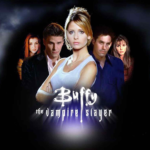
Buffy the Vampire Slayer
Buffy came into my life when I was about 14 years old. My brother, who had enjoyed the odd episode when it originally aired, convinced me to pitch in for the boxset and we watched it together over the course of a year. To say I was a fan would be an understatement; it quietly took over my life for a little while. I adopted an amalgamation of personality traits from the characters I liked, I took fashion tips from what Buffy wore, and I even named my kitten Willow after Alyson Hannigan’s character from the show. I poured most of my angsty teen emotions into Buffy – when I needed to cry, I watched a sad episode, when I wanted to laugh, I watched Buffy laugh.
Nowadays the obsession isn’t quite so strong; I still love the show and everything it stands for and to me the story just feels like home. It’s a safe place that I know well and can come back to anytime. It’s funny, as an adult, I now see plot points that used to mean something to me in a completely different way – and I’m sure my perspective will continue to evolve as I reach more milestones in life, like having children and losing a parent.
If you’ve never seen the show then at this point I don’t expect you ever will – but if you’d like to hear a convincing argument as to why you’re missing out on the best TV ever made then this is a good place to start.
-Amelia
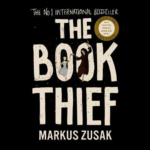
The Book Thief
Solid plot? Yes.
Strong emotions? Yes.
Compelling narration? Double yes.
Often, when you have very high expectations from a book, you may end up getting disappointed, but this book proved to be quite the opposite and I loved it and I continue to love it over and over again. This book has engrossed me for 10 years and the concept of Death narrates the story beautifully.
Set in Germany in the years 1939-1943, The Book Thief tells the story of Liesel, narrated by Death who has in his possession the book she wrote about these years. So, in a way, they are both book thieves – Liesel stealing a book first, of course. It is a story of friendship, loss, betrayal and ultimately, death. But that being said, it is never morbid, or grotesque, it remains beautiful and real, all the way to the end.
-Liz
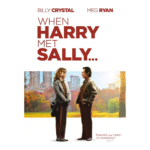
When Harry Met Sally
The film I can always rewatch is When Harry Met Sally. Story of a couple whose chance encounter leads to years of friendship and eventually the big romance. I love Nora Ephron’s writing, I love the fact that it’s basically the oldest story in the book – boy meets girl – but the characters are so well drawn and it’s so relatable that it feels bigger and warmer than that. The story has become inextricably linked into my life, partly because I watch it so often, but also because of this. It absolutely became part of my story too when my husband rewrote Harry’s speech to Sally, the one at the end at the New Year’s Eve party, when he tells her exactly why he loves her, and read it to me at our wedding. I wasn’t expecting it at all, and it was a wonderful moment.
-Sharon
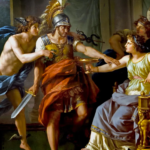
The Odyssey
The first translation by a woman
A parallel text with Greek and English – for the brave
A synopsis for the short of time
A simple plot, on an epic scale, the Odyssey has sustained authors for 27 centuries (at least), from Dante to Joyce to Attwood, and now it sustains me. At its most basic level, it’s a story about a man finding his way home, But much more than that, it’s about a man, a person – the very first word of the original Greek text is “man” – what it means to be a person, what it means to belong somewhere, to belong to people, The hero, Odysseus, isn’t a god – he’s just like us. He’s selfish. He’s arrogant. He’s deeply flawed. And that’s what makes him relatable, even all these years later.
The Odyssey rewards re-reading. It rewards those who study it closely. It’s a technically brilliantly put together work of literature, but one that wears it’s brilliance lightly and it’s just as enjoyable for the more casual reader. One day soon, I hope, I’ll go back to Greece. I’ll sit on a boat on the wine-dark sea and I’ll reread Odyssey for maybe the fiftieth time – sounds like home to me.
-Matthew
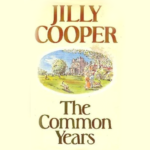
The Common Years
I have had this book in my possession since I was 21 years old. I bought it on a whim to read on the train on the way to work in London – literally grabbed it on the hoof from the promotional rack where it was sitting after her great success with Riders – another book I had read and enjoyed. This one is very different as it is based on the diaries Jilly kept when she was living near Putney Common for ten years and walked her dogs on the acres of green there every day. It’s warts and all stuff as you would expect from her style, but she writes so poignantly about the natural world, about caring for her children, her dogs, the changing seasons and the beauty around her. She is so insightful and underrated as an author and this book demonstrates her skill in bringing to life the day to day endurance tests people go through without even realising it.
So if I feel a bit low, I always go and grab it from the shelf and dip in. I don’t even have to start at the beginning. It’s uplifting to turn the (now battered) pages and take myself off to the past for a while. It’s even more of a comfort now when the present really isn’t much cop!
-Gina
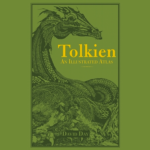
Tolkien’s universe
I was maybe nine or ten years old, walking to school with a friend ( …a bit of a hard nut ) one day in the early ‘70s. He was talking about this book with ‘elves and wizards and goblins’ and I said – what, you’re reading fairy stories? So he put me straight, I tiptoed into Tolkien’s universe, and it’s been a joy, a fascination and a refuge for me ever since.
The world divides into Tolkien nerds and Tolkien sceptics, and our house is no different. My youngest daughter and I can lose ourselves for hours in books, films and histories, while my wife and eldest daughter look on in bewilderment. What can I say? There’s so much to read, and the experience changes with age too. I re-read the Lord of the Rings as I approached fifty: the same age as Frodo at the opening of the book, and Tolkien himself when he began it. The sense of being bound to a fate, of carrying a burden, of sacrificing the comforts of home for a journey that may never see an ending, was so much more profound.
There’s no part of the literature or filmography that I don’t love, but for sustenance my go-to is the BBC Radio production of The Lord of the Rings, from 1981. With Ian Holm – who would play Bilbo in the films – as Frodo; an impeccable Michael Hordern as Gandalf – Ian McKellen still being in his 30s; and the excellent Bill Nighy – sounding nothing like himself – as Sam Gamgee. It’s about as perfect an adaptation as there ever will be. I can dip in randomly for 10 minutes wanton distraction, or listen to the whole thing end to end, and it’s always a joy.
-Andy

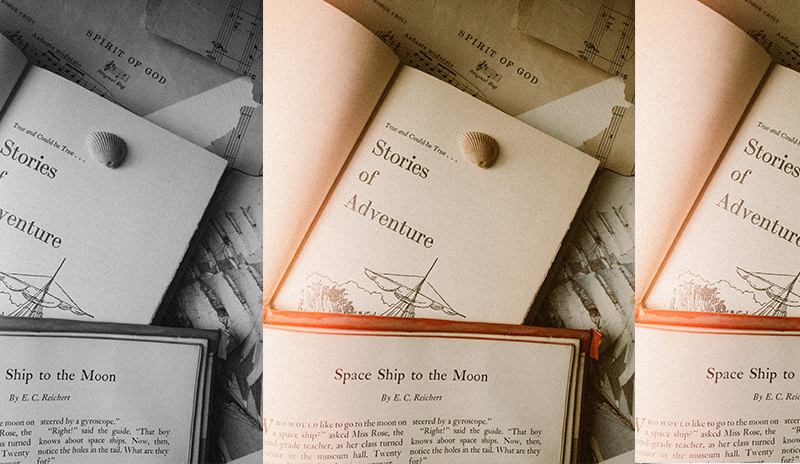
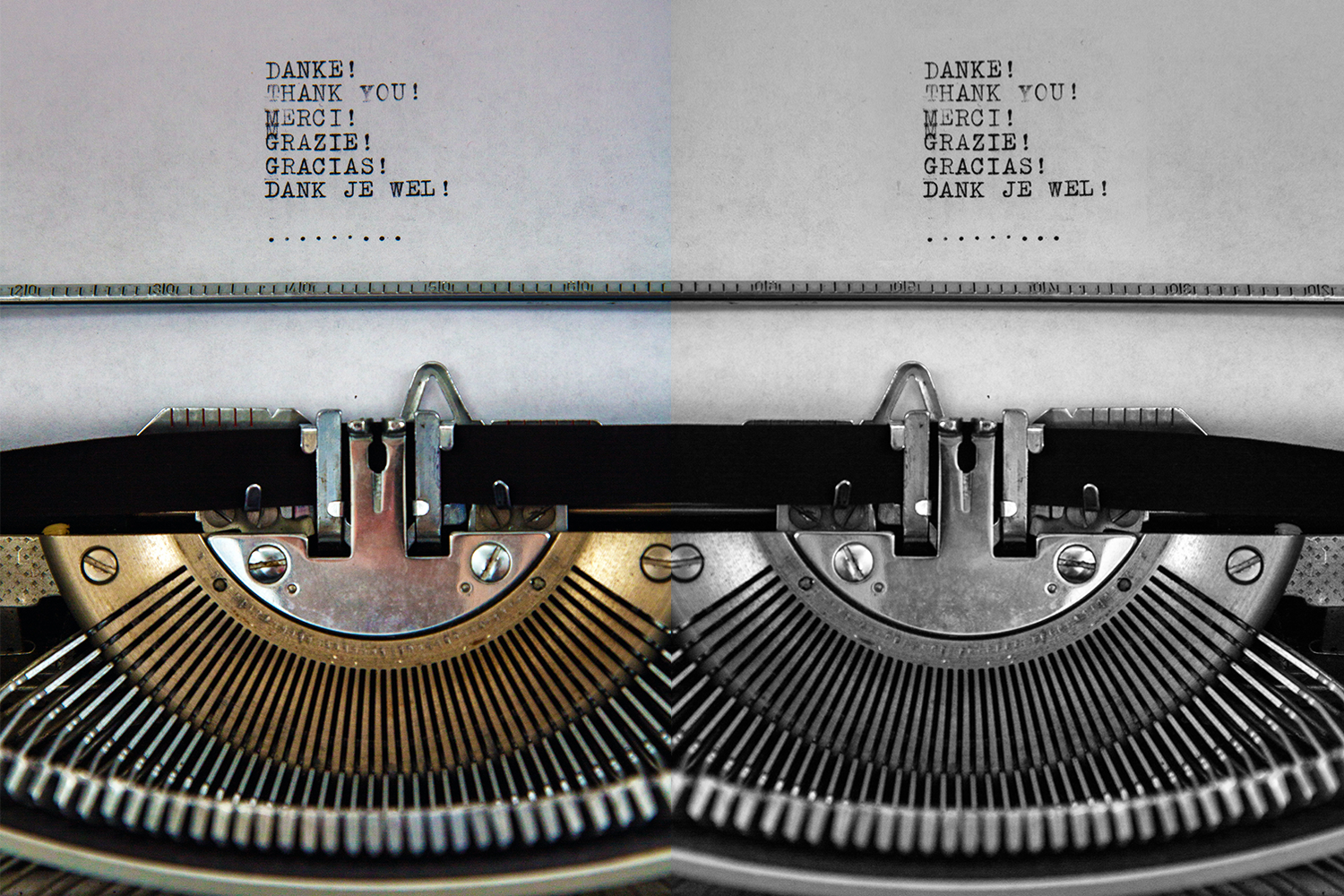
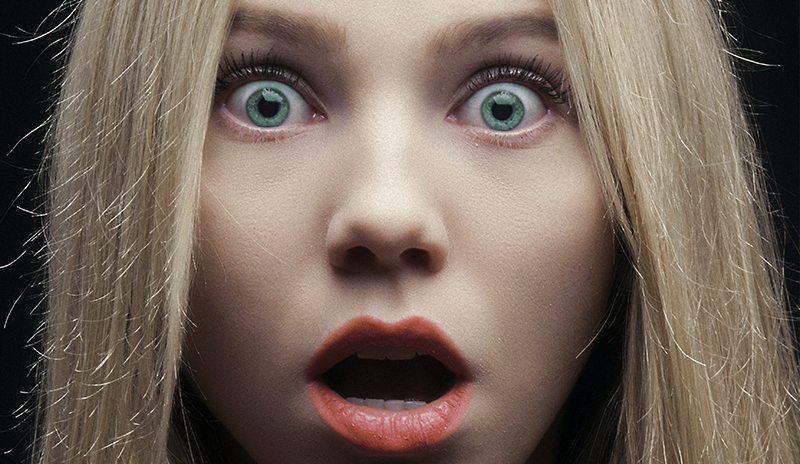
What do you think?